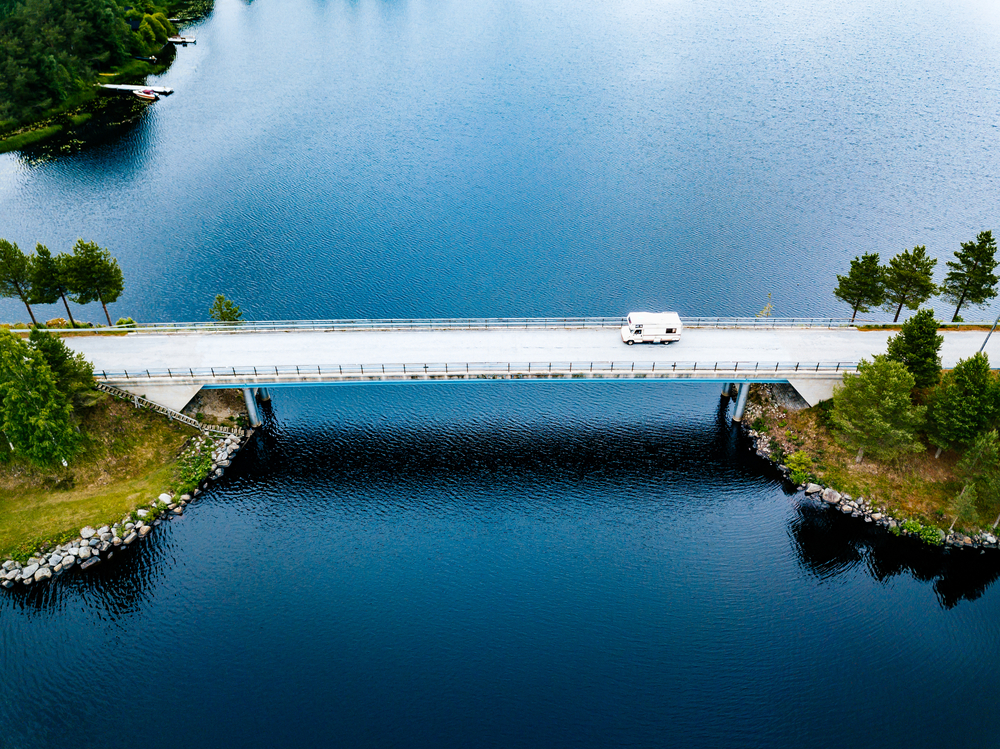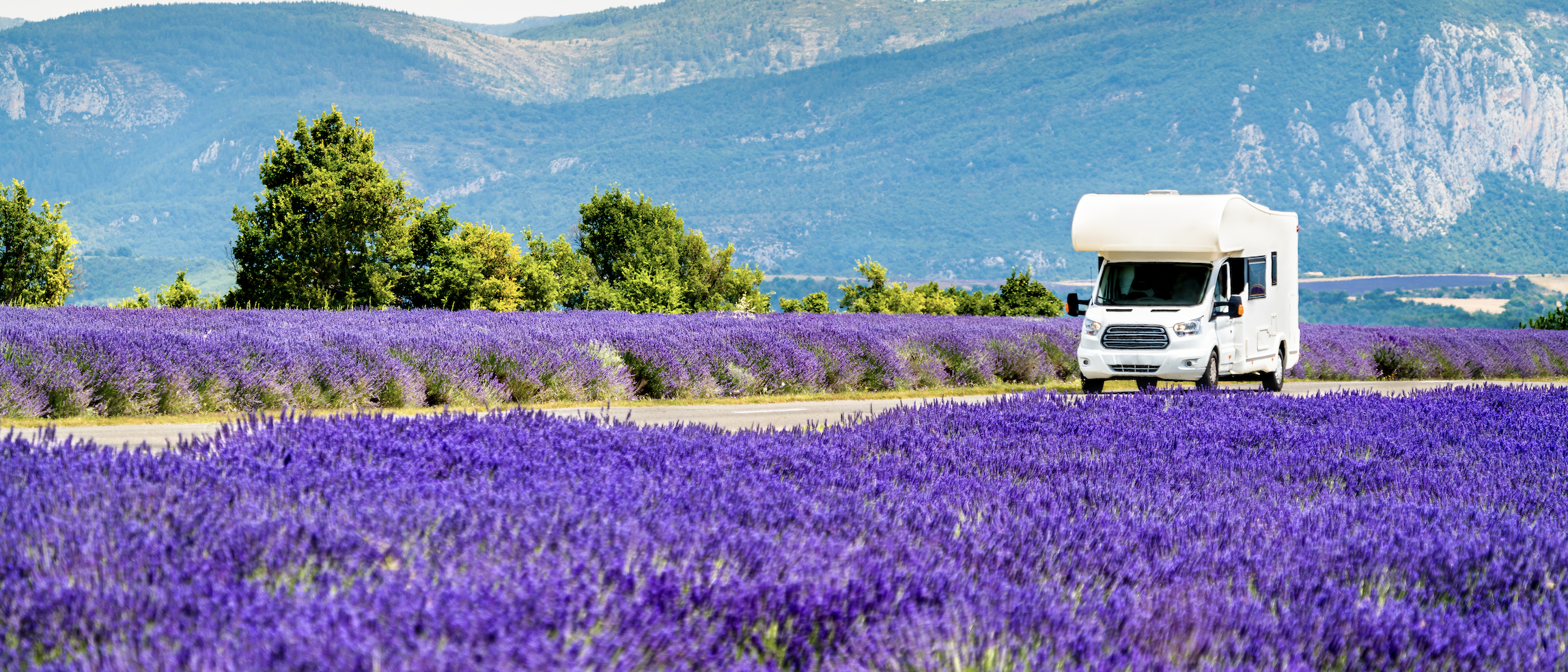Travel has long since been said to open the mind and be a truly transformative experience for the traveller.
Campervans have seen a huge surge in popularity, and they do indeed offer the user more convenience because you have your travel and accommodation needs taking care of.
All that is left is for you to work out the route. Taking the road less travelled – or the scenic route as some call it – affords travellers a truly unique experience. However, it is also a big commitment which is why we have put together the following tips so; let’s get into it.
Planning is Key
This tip really should be somewhat self-explanatory, but it is still worth going over. You should start by thinking about the route you want to take through Europe. Where are you starting from, and where do you want to end up? What places do you want to hit in between? Are there any attractions that you definitely want to include? This is where you will need to start to pad out your itinerary.
Even if you want to include some flexibility, you should still think about how many miles you can travel daily and where you are going to sleep. If you have opted for a campervan, then you can find places to park. However, if you are going by car or train, then you will also need to find accommodation. Booking in advance helps to make sure you get the best price, although regardless, you will still need to be aware of and adhere to any check-in and check-out times.
Think About Your Budget
When travelling for an extended period of time, you really need to keep a close eye on your budget. To start with, you need to think about how much you have for the trip overall. Think about how far you plan to travel and what that is going to equate to in fuel costs. After having done that, you can calculate how much you are likely to spend hitting the sights and attractions that you absolutely do not want to miss. The figure that you are then left with can be divided to give you a daily travel allowance.
In addition to the travel budget, there are also expenses to consider before you even head off on your travels. Most people already have the vehicle that they plan to use, although some might need to rent one. There is also the price of fuelling the vehicle. Some people also choose to think about insuring their vehicle for the trip too. Motorhome Protect offers motorhome insurance with a list of benefits and what you may be covered for all listed on their site.

Rest Time Matters
Obviously, when you commit to an extended bout of travel, like exploring Europe, your priority is the travel experience itself. While it is easy to run off of adrenaline on shorter holidays, when you are travelling for longer periods, it is vital that you make sure that you are getting enough rest. The entire experience can be ruined otherwise.
In addition to this, if you are driving through Europe and you aren’t getting enough sleep, you are far more likely to have an accident too. This is why you need to make sure that you have a plan for where you are going to rest your head every night. It might also be worth including a few stops during the day as well to give you a break from driving.
It is worth putting a bit of planning into your daily rest stops. It might make sense to plan your stops so that you avoid missing the busiest times of the day. Each country has its own rush hour depending on the working hours, and if you try to travel during that time, you are likely to burn through fuel without getting very much further. Scheduling breaks to avoid school or work traffic makes sense.
Think About What You are Going to Pack
The specifics of what you are going to pack will largely depend on your itinerary and the time of year it is. However, it is often a good idea to have a mix of clothing and shoe options with you, just in case. Travelling via car or campervan does afford you a bigger luggage allowance than you would have on a plane, which does mean that you can take more with you.
In addition to your personal items, there are a few other things that you should be sure to pack too. Accidents can happen, and although they are, of course, rare, it does pay to be prepared just in case. You should make sure that the vehicle is also equipped with a first aid kit, roadside emergency kit, spare tyre, and a jerry can too. You can find most of these things in an emergency car kit; there are a few different options on the internet.
Whilst it technically isn’t something that you can pack, it could form an important part of your emergency kit: do you have some form of breakdown cover in place? Depending on the cover that you have and the provider, there might already be a plan in place for you should you break down abroad. Otherwise, it might be worth looking into different providers and whether they can cover your journey or not, just in case you were to break down.
Think About How You’re Going to Pass the Time
Driving along for hours on end can get a little tedious, admittedly, which is why it is worth thinking of a few things that you can do to pass the time. It might depend on where you are travelling and whether you are travelling solo or not. You could choose to document the journey with a dedicated social media account, start a travel journal, or even simply take photos to show those when you get home.
You could also choose to play games to pass the time. There are hundreds of driving games out there, from I spy to spotting different car makes or models to the number plate game. If there is a group of you, packing a deck of cards could work. You could even simply make a playlist or download some films or television shows from a streaming service.
Remember to Pack Refreshments
What is a road trip without snacks? Having refreshments with you can help to make the journey more comfortable. It helps to maintain energy levels as well as keep the mood more stable. It can also help to save you some money while travelling too because your stops to eat will be less frequent.
The mode of travel that you are using will also heavily influence the types of refreshments that you can pack. If you are only travelling by car, then you will be limited in the types of refreshments that you can pack, on the other hand, if you are travelling by campervan then you will have more options because you have better food storage and preparation facilities.
However, just because you are packing refreshments and enjoying them while driving doesn’t mean that anyone has the excuse to let personal hygiene and tidiness standards slip. Remember, everyone in the car is travelling each day, and no one deserves to live and travel in a pigsty. It can ruin the experience if you find yourselves knee-deep in rubbish or smelly or decaying foods.
Always Follow a Map
Even if you are allowing for a certain level of flexibility in your itinerary, you will still need to know where you are headed every night. Relying on local road signs is never going to work – especially if you don’t speak the local language. If you can read a map and you feel confident in giving directions to the driver, or if you have someone who could give you directions while you are driving, then go for a paper option.
Otherwise, you are likely to need to rely on online maps and navigation systems. If you have a satnav, then you should make sure that you have downloaded all of the up-to-date map information onto it for your trip. If you are going to use a map on your smartphone, then you need to make sure that they are accessible when you haven’t got any signal or internet.
Always Check the Vehicle Before Setting off for the Day
Regardless of what vehicle you are driving, the likelihood is that you will be travelling for hours every day, which means doing a high daily mileage. In order to ensure that the vehicle is working to maximum efficacy and minimise the chance of breakdowns, you need to do a few daily checks before you head off on your journey each day.
Realistically, you should have the vehicle serviced before you head off. This will then flag any potential issues and allow you to have them fixed before going. Then every morning, you should do a rudimentary check of the vehicles, like ensuring that the wipers and all lights are in proper working order.
When you stop to fill up the vehicle, it is worth checking the tyre pressure and treads. If you can, you should also routinely check your fluid levels too. If you have a warning light come on whilst on your travels, it is important that you explore the issue, and if it is something that you cannot address yourself, then find yourself a mechanic.
Remember to Ask for Local Recommendations When Possible
Even with your copious amounts of research helping you to work out the best possible itinerary and list of must-see/must-doo attractions, you are still likely to miss some. The truth is that every place has a few hidden gems only known to the locals, and without making the effort to talk to them when you stop, you are going to miss out.
If you can, when you stop to eat or shop, it is always worth striking up a conversation with the waitress or shop assistant to ask them if there are any unmissable things that you simply need to do or see or eat while you are in town. It is these small interactions that can really help to make your holiday truly amazing.
Keep Important Documents to Hand
Depending on your trip itinerary, the likelihood is that you will be frequently passing through countries, some of which might have checkpoints and some won’t. There might be entry requirements to keep in mind. If you have booked activities in advance, you might also require copies of the confirmation.
This is why it is important that you keep any important documents to hand in case you encounter checkpoints or even get pulled over. Make sure that your driving licence, insurance documents, car manual and any other relevant paperwork are easily accessible should you need to get to, should you need to.
It is also worth considering how you plan to finance your trip. Are you going to use cash or card predominantly? Travelling through Europe is easy enough because Euros are the standard currency –for the most part – which does mean that you shouldn’t need to have your money changed into multiple different currencies. However, if you would prefer to use your bank cards, it is worth informing your bank that you are travelling so that they are aware of your plans and do not flag up or block any foreign purchases made using your card.
To Sum Up
Travelling across Europe is truly an amazing experience; in just a few weeks, you can traverse several different countries, encountering different cultures and ways of life. It can broaden the mind and change your perspective. In order to make the experience truly unforgettable, a lot of people choose to travel by campervan to make it more immersive. Regardless of the vehicle that you travel in, the tips above can help you to make the most out of the journey as opposed to simply focusing on the different destinations.





